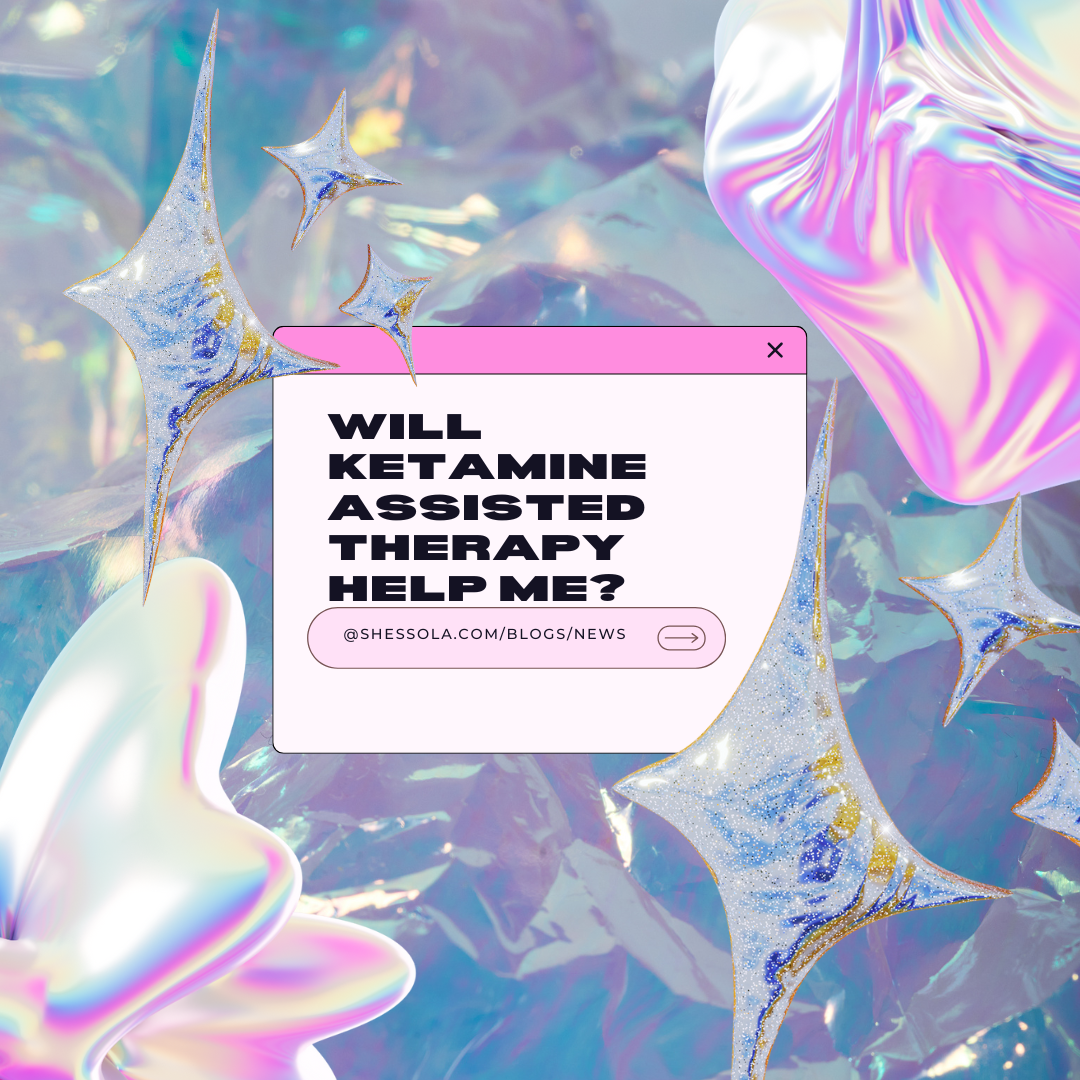
Trying Ketamine Assisted Therapy
Share
In this blog, we'll talk a lot on healing modalities that we've had experience with and how they work to treat and heal the aftermath of sexual assault. One we're interested in discussing this week is Ketamine Assisted Therapy.
So what is it and how does it work? We hope this information can help you learn more about this treatment and perhaps aid in understanding if it's something that might be right for you and your journey.
Disclaimer: Ketamine Assisted Therapy should only be administered under the supervision of a qualified healthcare professional. This post isn't to take place of necessary conversations with your therapist, doctor and/or other medical professionals!
Ketamine Assisted Therapy: A Comprehensive Guide What is Ketamine?
Ketamine, a medicine with a long-standing history in medical settings since 1970, has gained recognition as a safe and effective treatment for depression and other mental health conditions. It has received endorsements from both the National Institute of Mental Health (NIMH) and the American Psychiatric Association (APA). Ketamine, classified as a "dissociative" anesthetic, induces a sense of detachment and relaxation, and at higher doses, can lead to immobility. It has been widely used as a short-acting anesthetic for various procedures in adults, children, and animals. During ketamine treatment, individuals often report experiencing profound calm and, in some cases, psychedelic effects.
Ketamine Assisted Therapy (KAT)
Research has demonstrated that ketamine, even when used alone, can provide relief for individuals with severe depression who haven't responded to other treatments. Ketamine-assisted therapy (KAT), also known as ketamine-assisted psychotherapy (KAP), enhances the therapeutic benefits of ketamine by combining its medicinal effects with a therapeutic model that fosters a connection with one's "inner healing intelligence" or innate capacity for healing. This unique approach can expedite the healing process for distressing emotional symptoms like depression, PTSD, and anxiety. The therapy component of KAT enables clients to process insights gained during the ketamine experience with the therapist, promoting the integration of these insights for lasting symptom relief.
How Does Ketamine Treat Depression?
Research suggests that ketamine's effectiveness in treating depression stems from its ability to block glutamate by binding to N-methyl-D-aspartate (NMDA) receptors in the brain. Glutamate, a neurotransmitter vital for healthy brain function and nervous system regulation, can contribute to long-term, chronic, or treatment-resistant depression when its receptors become and remain overstimulated. A prevailing theory about ketamine's efficacy in treating depression centers on its potential to repair neurons. Studies have shown that prolonged stress can lead to the deterioration and death of brain cells, contributing to depression. Additionally, chronic stress weakens neural connections in the brain over time, and depression can decrease the number of synapses. While research is ongoing, experts believe that ketamine's interaction with brain receptors plays a crucial role in its ability to effectively treat depression. Ketamine has been found to encourage the formation of new neurons and can rapidly alleviate symptoms by directly restoring neural connections.
What to Expect When Starting Ketamine Treatment
I haven't done my KAT just yet; I start next week and will write again on the experience. For me and with my practitioner, the ketamine-assisted therapy (KAT) journey commences with a comprehensive diagnostic intake, which includes a 75-minute psychiatric evaluation. This evaluation helps determine the course of treatment, including the frequency of KAT sessions. Treatment is highly customizable, tailored to individual needs and any financial or other constraints.
Some individuals may receive two KAT sessions per week for four weeks, while others may require only one session per week or may be eligible for a hybrid approach that includes at-home ketamine sessions. Following the initial psychiatric evaluation, one or more 55-minute preparation sessions are conducted before starting KAT. These sessions aim to prepare individuals for the ketamine experience and address any questions or concerns they may have.
I've completed the initial evaluation and preparation sessions, and I am so excited to report back on how this process went and worked!